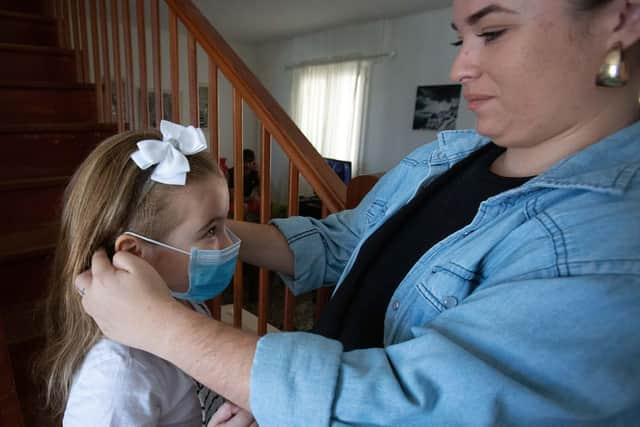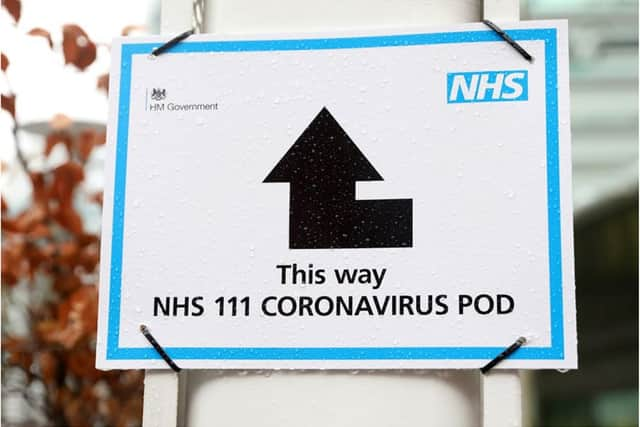Children Coronavirus Syndrome: These are the symptoms parents should look out for
and live on Freeview channel 276
A small number of children have been affected with a syndrome suspected of being related to the Coronavirus it emerged earlier today.
The alert, which was issued to GPs and intensive care doctors treating children across the UK at the weekend, revealed that accident and emergency wards in London and in other parts of the United Kingdom had reported a spike in the number of children presenting with strange symptoms.
These are the signs to look out for:


- High temperature
- Low blood pressure
- A rash
- Difficulty breathing


- Tummy pain
- Vomiting
- Diarrhoea
- Inflammation of the heart
- Abnormal blood test results
Advertisement
Hide AdAdvertisement
Hide AdExperts have stressed that whilst a child presenting with these symptoms should receive urgent treatment, the number of children that have been affected remains relatively low.
Professor Russell Viner, the president of the Royal College of Paediatrics and Child Health, said whilst COVID-19 rarely affects children the way it does adults, parents should continue to seek medical assistance should they be concerned about their son or daughter's health.
“We already know that a very small number of children can become severely ill with COVID-19 but this is very rare.
"Evidence from throughout the world shows us that children appear to be the part of the population least affected by this infection.
Advertisement
Hide AdAdvertisement
Hide Ad“New diseases may present in ways that surprise us, and clinicians need to be made aware of any emerging evidence of particular symptoms or of underlying conditions which could make a patient more vulnerable to the virus.
"However, our advice remains the same: parents should be reassured that children are unlikely to be seriously ill with COVID-19, but if they are concerned about their children’s health for any reason they should seek help from a health professional.”
According to the alert, which was reportedly originally shared with GPs in North London, children affected display signs similar to toxic shock syndrome (TSS), a severe illness associated with infections, and have blood markers in line with severe Covid-19 in children.
The alert says: "There is a growing concern that a Sars CoV-2 (Covid-19) related inflammatory syndrome is emerging in children in the UK, or that there may be another, as yet unidentified, infectious pathogen associated with these cases."
Advertisement
Hide AdAdvertisement
Hide AdThe alert talks about atypical Kawasaki disease, a condition that mainly affects children under the age of five.
Symptoms include a high temperature that lasts for five days or more, often with a rash and/or swollen glands in the neck.
NHS England stressed there was no confirmed connection between Kawasaki-related diseases and Covid-19.
Professor Simon Kenny, the NHS's national clinical director for children and young people, said: "Thankfully Kawasaki-like diseases are very rare, as currently are serious complications in children related to Covid-19, but it is important that clinicians are made aware of any potential emerging links so that they are able to give children and young people the right care fast.
Advertisement
Hide AdAdvertisement
Hide Ad"The advice to parents remains the same: If you are worried about your child for whatever reason, contact NHS 111 or your family doctor for urgent advice, or 999 in an emergency, and if a professional tells you to go to hospital, please go to hospital."